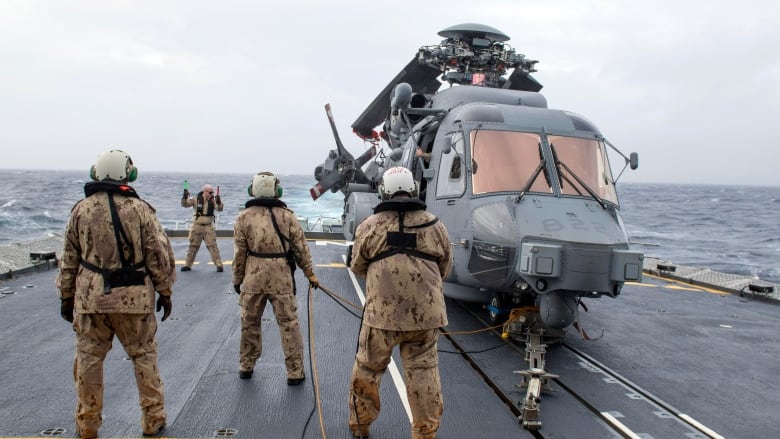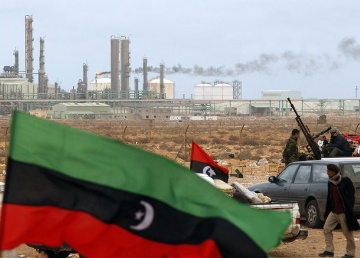What is NATO Operation Reassurance?
Operation Reassurance is the name of NATO’s mission to deter Russian aggression in Central and Eastern Europe. This mission started on April 16, 2014 when NATO agreed upon and began to enact various military measures based on the principles of defence, deterrence and de-escalation in order to reinforce NATO’s collective defence and demonstrate the strength of allied solidarity. This mission was deemed necessary after Russia’s annexation of Crimea in Ukraine in March 2014. This marks the biggest land grab in Europe since WW2 and has done significant damage to Europe’s security order and stability. NATO therefore began taking extra reassurance measures for its allies such as boosting air policing missions.
Canada’s Role
The Canadian Armed Forces (CAF) offered assets and members to NATO on April 17, 2014 and has been active in the mission ever since. During the operation the CAF is conducting training, exercises, and some NATO-specific tasks. Operation Reassurance is Canada’s largest current military operation with up to 915 CAF members deployed at any time.
Since 2014, CAF have deployed a frigate on a persistent rotational basis to be employed for exercises and operational tasks in the NATO Maritime Command’s areas of responsibility. Earlier this year on January 20, 2020 – HMCS Fredericton set sail for a 6 month deployment. HMCS Fredericton’s deployment is part of a range of military activities undertaken by the CAF to support NATO assurance and deterrence measures. These activities include the provision of military capabilities for training, exercises, demonstrations and assigned NATO tasks and demonstrate Canada’s commitment to promote security and stability in Central and Eastern Europe.
The Plane Crash
On April 29th, 2020 during a NATO training exercise off the coast of Greece, one of Canada’s military helicopters – a CH-148 Cyclone – crashed while returning to HMSC Frederiction. The helicopter had 6 Canadian service members onboard:
- Capt. Brenden Ian MacDonald from New Glasgow, N.S
- Capt. Kevin Hagen from Nanaimo, B.C.
- Capt. Maxime Miron-Morin, from Trois-Rivieres, Que.
- Sub-Lt. Matthew Pyke from Truro, N.S.
- Master Corp. Matthew Cousins from Guelph, Ont.
- Sub-Lt. Abbigail Cowbrough from Dartmouth, NS.
The helicopter carrying six CAF members had just completed a training exercise with Italian and Turkish warships and was flying back to the ship when it lost contact at approximately 6:52 p.m. local time on Wednesday, Chief of defence staff Gen. Johanathan Vance said. He didn’t say whether there had been a mayday call, but the data and voice recorders were lit up automatically by flares when they broke off the helicopter. The CAF later acknowledged that the crew aboard the Fredericton saw the helicopter go down in deep water off the coast of Greece.
Defence Minister Harjit Sajjan said the cause of the incident is unknown at this time but the voice and data recorders that broke away from the helicopter during the crash had been recovered.
About the Plane
The CH-148 Cyclone was designed, built and configured by Sikorsky, a Lockheed Martin company, and Canada’s Department of National Defence for anti-submarine warfare, anti-surface warfare, maritime search and rescue, overland operations and utility missions. As Canada’s first true intelligence, surveillance and reconnaissance helicopter, the fly-by-wire Cyclone is equipped with a fully integrated mission system, modern sensors and a multi-mission cabin — providing a quantum leap in maritime helicopter capability. The Cyclone helicopters replaced Canada’s aging fleet of Sea Kings in 2018.
Next Steps
Due to the crash Gen. Johanathan Vance said the Cyclone helicopter fleet was on an “operational pause” to allow flight safety teams to investigate and rule out any potential fleet-wide problems. He has also defended the helicopter’s performance.
“It’s a powerful helicopter with fantastic sensing capability,” he said. “I don’t have any lack of confidence in this fleet.” The Royal Canadian Air Force owns 17 other Cyclone helicopters. Rear-Admiral Craig Baines has said that the operational pause of the fleet will remain in place for as long as needed for the Air Force investigation to take place and the plan is for the HMCS Fredericton to remain part of Operation Reassurance for the duration of the mission.
The helicopter’s flight-data and cockpit voice recorders that were recovered are now back in Canada for analysis. The Defence Department says a team that includes social workers and military chaplains have been deployed to Italy to provide mental health support to Fredericton’s crew, who have been allowed to communicate with loved ones back home.
This crash, the cause of which remains under investigation, represents the largest loss of life in one day for the Canadian Armed Forces since six Canadian soldiers were killed in a roadside bombing in Afghanistan on Easter Sunday 2007.
Featured Image: Corporal Chris Rodusek, second left, guides a CH-148 Cyclone helicopter into position aboard HMCS Fredericton during Operation Reassurance on Jan. 22, 2020. (Cpl. Simon Arcand/Canadian Armed Forces/Combat Camera)
Disclaimer: Any views or opinions expressed in articles are solely those of the authors and do not necessarily represent the views of the NATO Association of Canada.




